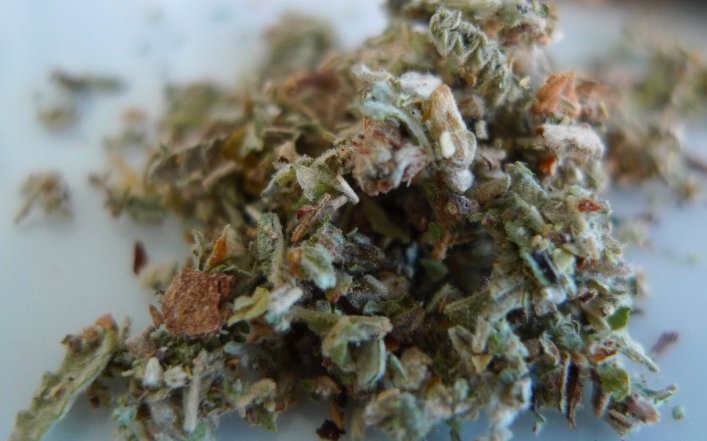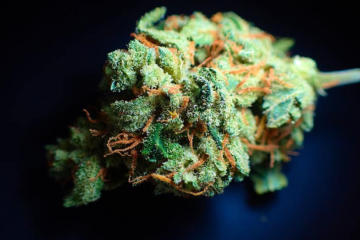The cannabis industry is facing a new challenge: the emergence of intoxicating hemp and synthetic cannabinoids that are not regulated by the same standards as other cannabis products. These substances pose serious risks to consumers, especially minors, who may unknowingly purchase them from unlicensed retailers or online platforms. A recent webinar by the GMP Collective, a consulting firm that helps cannabis businesses comply with good manufacturing practices, explored the current state of intoxicating hemp and synthetic cannabinoids, the legal and regulatory implications, and the best practices for ensuring consumer safety and quality.
What are intoxicating hemp and synthetic cannabinoids?
Hemp and cannabis are both derived from the same plant species, Cannabis sativa L., but they have different legal definitions based on the concentration of delta-9-tetrahydrocannabinol (D-9-THC), the main psychoactive compound in cannabis. Hemp is defined as any part of the plant that contains no more than 0.3% of D-9-THC, while cannabis is any part of the plant that contains more than 0.3% of D-9-THC. Hemp is federally legal under the 2018 Farm Bill, while cannabis remains illegal under the Controlled Substances Act.
However, hemp contains other cannabinoids, such as cannabidiol (CBD), that can be converted into D-9-THC or other psychoactive compounds through chemical processes, such as decarboxylation or isomerization. These converted cannabinoids, such as delta-8-THC (D-8-THC) or delta-10-THC (D-10-THC), are not naturally occurring in hemp, but are artificially derived from hemp extracts. They are often marketed as “hemp-derived THC” or “legal THC”, and claim to offer similar effects as cannabis, but with less anxiety or paranoia.

Synthetic cannabinoids are another category of intoxicating substances that are not derived from the cannabis plant, but are chemically synthesized in laboratories. They are designed to mimic the effects of natural cannabinoids by binding to the same receptors in the brain, but they are often much more potent and unpredictable. Synthetic cannabinoids are also known as “spice”, “K2”, or “fake weed”, and are usually sprayed on plant material or sold as liquids or powders.
Both intoxicating hemp and synthetic cannabinoids are widely available to consumers, especially online, without undergoing the same testing requirements or being subjected to the same regulations as other cannabis products. They are often labeled as “hemp-derived”, “CBD”, or “natural”, and do not disclose the actual ingredients or potency. They are also sold in various forms, such as gummies, vapes, oils, or flowers, and can be easily confused with non-intoxicating hemp or cannabis products.
What are the risks of intoxicating hemp and synthetic cannabinoids?
Intoxicating hemp and synthetic cannabinoids pose significant risks to consumers, especially minors, who may not be aware of the true nature or effects of these substances. Some of the risks include:
- Contamination: Intoxicating hemp and synthetic cannabinoids are often produced in unregulated or illicit facilities, where there is no quality control or oversight. They may contain harmful contaminants, such as pesticides, heavy metals, solvents, or other unknown substances, that can cause adverse health effects or even death.
- Inconsistency: Intoxicating hemp and synthetic cannabinoids are often poorly labeled or mislabeled, and do not provide accurate information on the ingredients, potency, or dosage. They may vary widely in their concentration and composition, even within the same batch or product. This can lead to unpredictable or undesired effects, such as overdose, addiction, or withdrawal.
- Interactions: Intoxicating hemp and synthetic cannabinoids may interact with other medications, supplements, or substances, such as alcohol, opioids, or antidepressants, and cause dangerous or fatal reactions. They may also interfere with the effectiveness or safety of other treatments, such as chemotherapy or antiretroviral therapy.
- Impairment: Intoxicating hemp and synthetic cannabinoids can impair the cognitive, motor, and sensory functions of the user, and affect their judgment, perception, memory, and coordination. This can increase the risk of accidents, injuries, or violence, especially when driving, operating machinery, or engaging in other activities that require attention or skill.
- Psychosis: Intoxicating hemp and synthetic cannabinoids can induce or exacerbate psychotic symptoms, such as hallucinations, delusions, paranoia, or aggression, especially in individuals with a history or predisposition of mental illness. They can also trigger or worsen anxiety, depression, or suicidal thoughts, and affect the emotional and social well-being of the user.
What are the legal and regulatory implications of intoxicating hemp and synthetic cannabinoids?
Intoxicating hemp and synthetic cannabinoids are subject to a complex and evolving legal and regulatory landscape, that varies by state and federal level. Some of the legal and regulatory implications include:
- Federal law: Intoxicating hemp and synthetic cannabinoids are not explicitly regulated by the federal government, and fall into a legal gray area. While hemp is federally legal, the conversion of hemp-derived CBD into other cannabinoids, such as D-8-THC or D-10-THC, may violate the Federal Food, Drug, and Cosmetic Act, which prohibits the introduction of new drugs into interstate commerce without approval by the Food and Drug Administration (FDA). Synthetic cannabinoids are illegal under the Controlled Substances Act, which classifies them as Schedule I substances, along with cannabis and heroin. However, some synthetic cannabinoids may evade detection or prosecution by using novel or modified chemical structures that are not listed in the law.
- State law: Intoxicating hemp and synthetic cannabinoids are regulated differently by each state, and the laws are often unclear, inconsistent, or contradictory. Some states, such as Colorado, Oregon, or Vermont, have banned or restricted the sale or possession of intoxicating hemp or synthetic cannabinoids, while others, such as Florida, Georgia, or Texas, have allowed or tolerated them. Some states, such as California, New York, or Illinois, have proposed or enacted legislation to regulate or prohibit intoxicating hemp or synthetic cannabinoids, while others, such as Arizona, Nevada, or Washington, have not addressed them. Some states, such as Alaska, Hawaii, or Montana, have legalized cannabis for adult use, but not intoxicating hemp or synthetic cannabinoids, creating confusion and conflict among consumers, businesses, and regulators.
- Local law: Intoxicating hemp and synthetic cannabinoids are also subject to local ordinances and regulations, that may differ from or supplement the state and federal laws. Some local governments, such as Los Angeles, San Francisco, or Denver, have banned or restricted the sale or possession of intoxicating hemp or synthetic cannabinoids, while others, such as Houston, Miami, or Chicago, have not. Some local governments, such as Portland, Seattle, or Boston, have legalized cannabis for adult use, but not intoxicating hemp or synthetic cannabinoids, creating inconsistency and disparity among jurisdictions.
What are the best practices for ensuring consumer safety and quality?
Intoxicating hemp and synthetic cannabinoids pose a serious threat to consumer safety and quality, and require urgent action from all stakeholders, including consumers, businesses, regulators, and lawmakers. Some of the best practices for ensuring consumer safety and quality include:
- Education: Consumers need to be educated about the risks and realities of intoxicating hemp and synthetic cannabinoids, and how to identify and avoid them. They need to be informed about the differences between hemp and cannabis, natural and synthetic cannabinoids, and legal and illegal products. They need to be aware of the signs and symptoms of intoxication, overdose, or adverse reactions, and how to seek help or report incidents. They also need to be empowered to make informed and responsible choices, and to respect the rights and well-being of others.
- Testing: Businesses need to test their products for potency, purity, and safety, using accredited and independent laboratories, and following standardized and validated methods. They need to disclose the test results and certificates of analysis to consumers, regulators, and law enforcement, and provide accurate and consistent labeling and packaging. They also need to comply with the applicable laws and regulations, and adhere to the best practices and ethical standards of the industry.
- Regulation: Regulators need to regulate intoxicating hemp and synthetic cannabinoids, using a comprehensive and consistent approach, and based on the best available scientific evidence and public health principles. They need to establish clear and enforceable rules and guidelines for the production, distribution, and sale of these products, and monitor and inspect the compliance and performance of the businesses. They also need to coordinate and collaborate with other agencies and jurisdictions, and engage and consult with the stakeholders and the public.
- Legislation: Lawmakers need to legislate intoxicating hemp and synthetic cannabinoids, using a balanced and rational approach, and based on the best interests and values of the society. They need to update and harmonize the existing laws and regulations, and close the loopholes and gaps that allow these products to proliferate. They also need to create and support effective and equitable policies and programs that prevent and reduce the harms and costs associated with these products.



